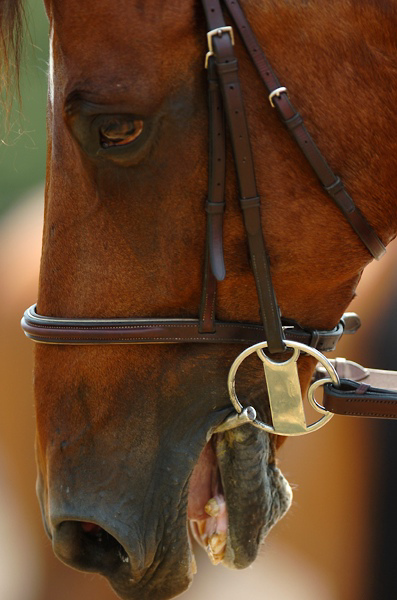
You may have wondered whether stress can really detract from your horse’s performance. Now there’s scientific proof that it can, according to a study conducted by Aleksandra Gorecka-Bruzda, PhD, DSc, and colleagues at the Institute of Genetics and Animal Breeding of the Polish Academy of Sciences.
The scientists set out to objectively determine if there was a relationship between sporthorse performance and behavior and physiological stress indicators. The study included a test group of 19 equine show-jumping competitors, six of whom were housed at the institute and 13 of whom were transported. Another five horses remained in their home training routine and served as controls.
The test horses were grouped according to jump height: “light,” with obstacles equal to or less than 100 cm (about 3-foot-3) and “difficult,” with obstacles over 100 cm. The researchers measured salivary cortisol concentration, a physiological indicator of stress, before a first jumping round as well as 20 minutes and one hour after a second jumping round.
For both rounds, they also evaluated conflict behaviors—signs of resistance indicating mental or physical discomfort. These included headshaking, yanking on the reins and tail-swishing. Faults, i.e. refusals and knockdowns, of each horse were totaled for both rounds and the animals were classified in “less faults” class if they made less than or equal to 1 (median value) fault, or as “more faults” if they exceeded this value (more than one fault).
The researchers found that salivary cortisol concentration at the 20-minute post-jumping mark was higher in the “more faults” group and among horses who had been transported. Conflict behavior was observed more frequently in horses with more faults and among those jumping the taller fences. Also, horses who waited longer to jump their second round showed more conflict behaviors.
In short, horses showing more stress responses were less successful performers. Thus, the team concluded, finding more effective ways to reduce the stress of transport and competition itself could both improve your horse’s welfare and his competitive performance.
This article was originally published in the November 2017 issue of Practical Horseman.










